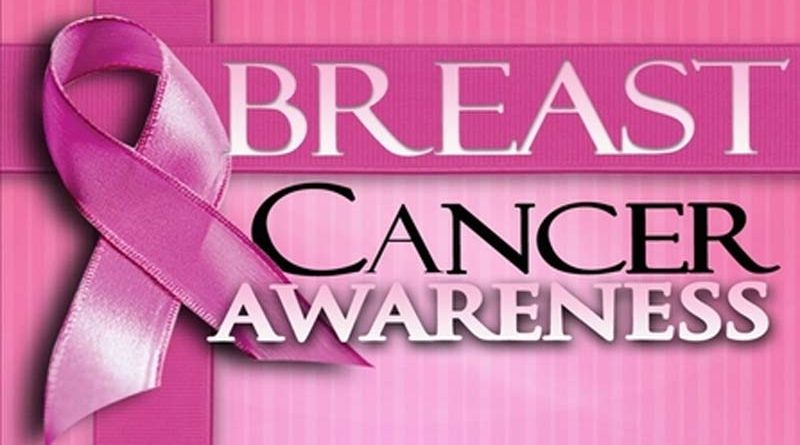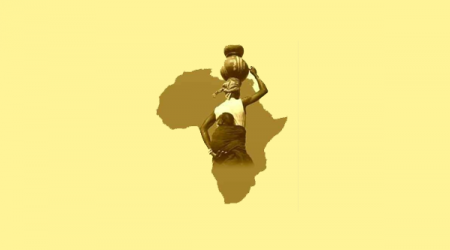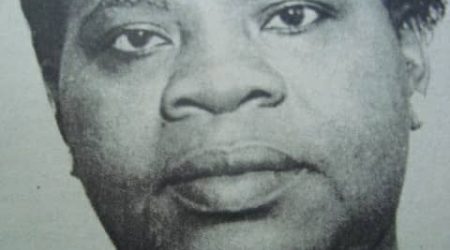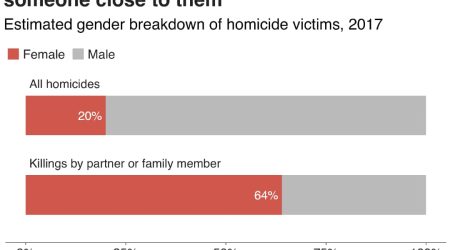Breast Cancer Awareness, October
ONE IN 8 WOMEN will be diagnosed with breast cancer.
Most of those one in 8 women should be able to survive breast cancer, with early detection and treatment.
However, in developing countries, specially in Southern Africa, most of those 8 women would not have the awareness or skills on self examination for unusual lumps or growths on, or around their breasts, including their armpits.
In Southern Africa, we do not have a culture to precipitate disease. We wait until the disease takes hold on our bodies, and on the bodies of our loved ones, before we take remedial action.
Most often, we deny there is a disease, and remain mute until the disease has become difficult to cure. Even then, few women would have the financial resources to travel to urban areas, from rural communities, in search of medical treatment.
Women also need ‘permission’ from spouses or fathers to take the journey to seek medical help when confronted by disease. Anyway, most often, breast cancer is not taken to be a disease, and few husbands would make the effort or spend money to have their wives get treatment for breast cancer.
Come to think of it, women with breast cancer would most likely say they have been hexed, or bewitched by a neighbor or co wife and would rather pay a visit to the local traditional healer to be cured of the witch craft, than take the long journey to a urban medical center for diagnosis and treatment.
This illustrates the fact that our nation has not invested sufficiently on breast cancer awareness; and on breast cancer diagnosis. It is a major indicator which shows us that women’s health is not given due importance, which also impacts on our national budgets on health..
In Tanzania, we do not have sufficient medical centers to check for breast cancer.
Breast cancer is an ‘invisible’ disease partly because it is associated with women, who have low status in families and in society; but also because the breast, the symbol of the nurturing; breast feeding mother; should not be diseased. Anything contrary to that symbol, is an aberration and a taboo subject in our communities
Breasts are also identified with sexuality and a woman’s beauty, and therefore, a breast with disease cannot be discussed because that would be denigrating the beauty of a woman.
The men in our society have been brought up to believe that the breasts of a woman should be of certain proportions; upright; spherical; firm; healthy; and whole!
When they become diseased as in breast cancer, a woman is deemed to have lost her beauty; her sexuality; and her status as a sex symbol.
Also, a woman with breast cancer loses her status, that she is no longer the symbol of the nurturing; breast feeding mother which affirms a man’s fertility and virility of being able to make a woman pregnant; make a baby on her; so that she would breast feed the baby to illustrate the virility and fertility of the man who made the baby in her. This has served to entrench breast cancer into the realm of invisibility and taboo.
Few families would be willing to have conversations on breast cancer, that breast cancer is a reality, and could come into the family like the proverbial unwelcome visitor, build roots, while tearing the family asunder.
Emilia has had a double mastectomy and is a survivor of breast cancer.
She lives in Dar es Salaam, a professional woman working for one of the big banks in the city.
She describes her journey as one full of pain from the mastectomy; to the chemotherapy; to losing her hair and having to wear a wig; to losing the love and attention of her husband; to being abandoned by her husband; to the divorce; to the court battle for marital property; to becoming a counselor for breast cancer survivors.
Says Emilia “Mine has been a journey which I had never planned on taking. A journey of self discovery which I wish I didn’t have to take, but which was forced on me by life. Every woman has her own story to tell. Mine is a story of disease; betrayal; painful medical treatment; and finally finding myself. Here I, am, now, a woman who has had to go on an unplanned journey while losing most things I held dear, only to find that I have vast reservoirs of strength which I never knew I had”.
Another breast cancer survivor, Ayesha, said her parents in law were most supportive, so was her sister in law, but her husband just couldn’t bear looking at her chest where she has had the double mastectomy. He started neglecting her soon after the surgery and started keeping a mistress openly.
Ayesha offered her husband the option of divorce, but her father in law insisted that she remains in the family with her two daughters, and then threw out Ayesha’s husband.
“Remember the vows you took when you married her, that you would take care of her for the rest of her life” Ayesha’s father in law shouted at Amir, her husband.
“I have forgiven Amir says Ayesha, he needed counseling to come to terms with the breast cancer, but unfortunately, we do not have such structures in Tanzania, which offers counseling to couples and families which are hit by cancer”.
In contrast, Amina’s mother in law told her son, Hatib, Amina’s husband to divorce her after she had been diagnosed with breast cancer.
“She is useless now, her mother in law said, she cannot even have any more children after the radiation and chemotherapy. How can you keep her when she has given you only one daughter?”
While undergoing treatment in her sister’s house, Amina received the notice for divorce from her husband’s lawyer who could not look at her in the eye, feeling ashamed that he has to give her such news while she is sick and undergoing treatment.
The lawyer told Amina “I will make sure your husband gives you financial maintenance but he wants custody of the daughter you share”.
Amina asked the lawyer “Is he afraid I would infect our daughter with breast cancer?” The lawyer looked away.
Marian has a supportive husband and he shows sympathy, but he too cannot bear to look at her chest with the two breasts removed after mastectomy. A friend of Marian’s husband has recommended reconstructive surgery and breast implants, which Marian’s husband has agreed to fund, but there is still doubt in his mind, on whether he would find her sexually attractive again.
He hasn’t touched her in two years since she has had the mastectomy.
Marian says ruefully “It is as if I have stopped being sexual, that I have become asexual after the mastectomy, although my doctor has reassured my husband that we can resume sexual relations and that our intimacy would restore my self esteem”.
The Tanzania Breast Cancer Foundation which was started by a group of breast cancer survivors, and this writer’s friend, the late Anette La Touché, offers counseling to survivors but it is under funded; under staffed; and the members though survivors, lack the skills in CSO management; counseling; outreach; and media advocacy.
What brought them together is breast cancer survival; and the shared experiences of its members.
What are needed in Tanzania are the following:
* Public Education on breast cancer through radio, because radio has a wider reach than other forms of media. Most hamlets in Tanzania have access to radio, both mainstream radio, and community radio.
The Public Education should raise awareness on breast cancer, the symptoms; the remedial action to be taken; the need for empathy and support to breast cancer patients; the removal of stigma and discrimination against breast cancer survivors.
* Gender Progressive Budget allocation on women’s health, so that each district in Tanzania would have mammogram services; care; and treatment for women with breast cancer.
* Outreach to communities to inform them on breast cancer.
* Opinion Leaders; Faith Leaders; Local Government Authorities; Community Based Organizations; should include breast cancer awareness in their speeches and programs.
* Faith Based Organizations should be given training on counseling breast cancer survivors; their families; and their communities.
This should be taken as a priority, with media houses requested to include messages on breast cancer, pro bono.
After all, only 5.1 percent of Tanzanians are PLHIV, and yet the budget for HIV and AIDS Intervention is huge, yet, One in Eight women is likely to get breast cancer.
Before I pen off, I should insist here that men too could, and do get breast cancer. Maybe this message would make the nation sit up.
That men are prone to getting breast cancer, and do require mastectomy, this, apart from prostrate cancer with wives of such men never suing for divorce, but reach out a hand of support and offer love and care.
The time for intervention on breast cancer is now!
“Together We Can Make it Happen”
Leila Sheikh














Leave a Reply